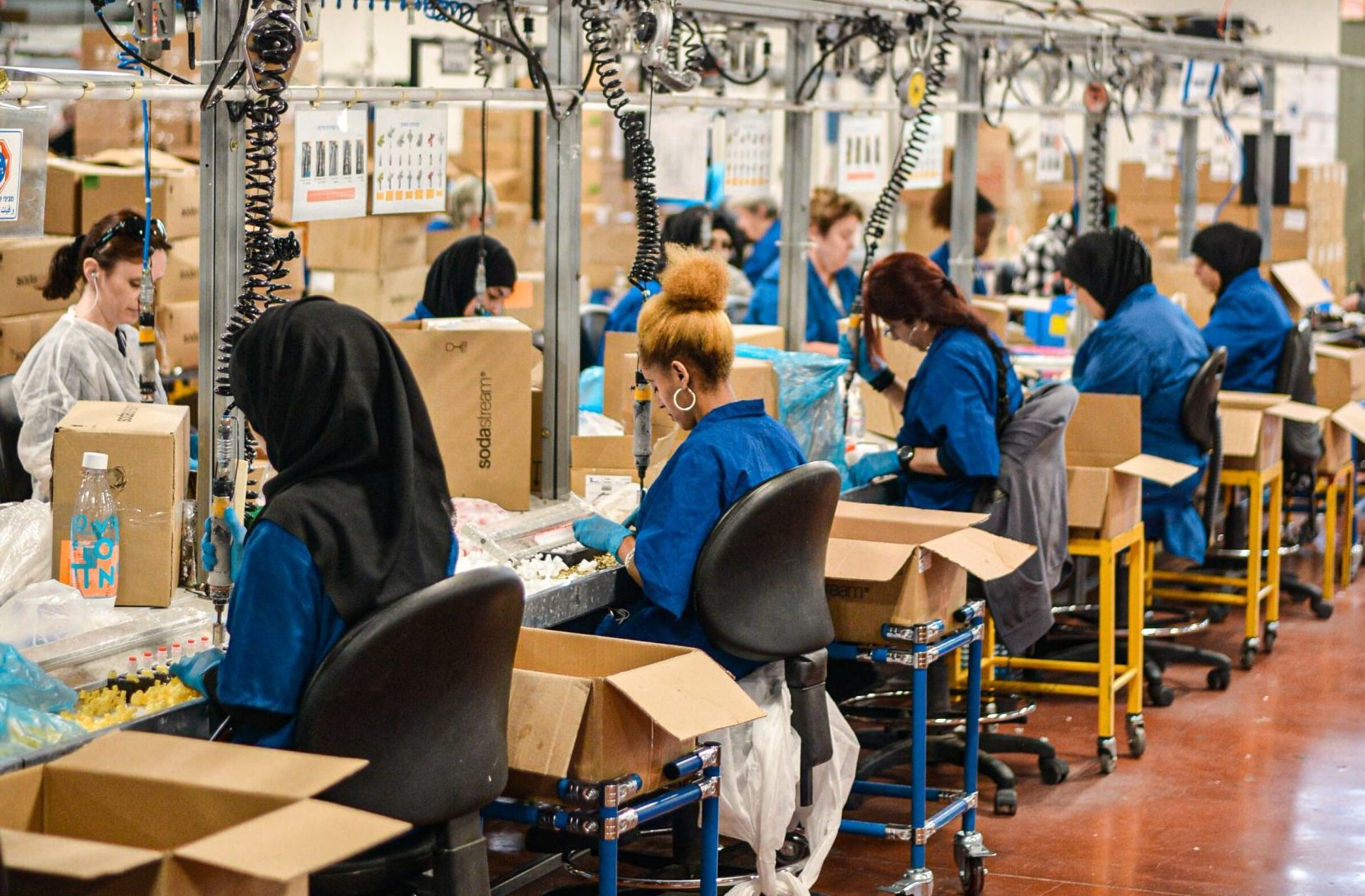Introduction to Manufacturing Employees Mental Health
In the UK manufacturing sector, mental health challenges are prevalent, with work-related stress accounting for 57% of all working days lost to ill health[1]. Alarmingly for the section this is above the national average. Studies have shown that workers in manufacturing environments are more likely to experience mental health problems than those in other sectors, often due to the high levels of concentration and pressure to meet production goals contributing to stress and risk of physical safety[1][2]. The loud and chaotic nature of manufacturing environments can also contribute to overwhelming stress and anxiety for some employees[1]. This has led to nearly one in four UK manufacturing workers feeling that their work environment negatively impacts their mental health[1]. The impact of mental health issues on the workforce is significant, with more than a third of manufacturing companies in the UK having experienced an employee leaving due to poor mental wellbeing support[5].
The prevalence of mental health problems in the UK manufacturing sector is a cause for concern, as it not only affects the well-being of employees but also poses a risk to the organisations themselves. A study revealed that 34% of manufacturing companies have experienced an employee leaving their company due to poor mental wellbeing support, with 21% losing a valuable staff member[5].
But there is further concerns, more than half of manufacturing workers indicated that they would seek a new job if their mental wellbeing was not supported by their employer, highlighting the potential impact on staff retention and the overall workforce[5].
Therefore, it is crucial for businesses in the manufacturing sector to prioritise mental health and well-being training, create a supportive environment for open discussions about mental health concerns, and provide access to mental health resources to address these challenges effectively[1][2].
Factors Influencing Mental Health in UK Manufacturing
The manufacturing industry in the UK presents unique challenges and stressors that can significantly impact the mental health of its employees. A study of UK manufacturing workers found that nearly one in four workers felt that their work environment negatively impacted their mental health[6]. Additionally, the industry has seen a 39% increase in reported mental health cases over the past three years, indicating a growing concern[9].
Long working hours and the potential impact of technological changes on job roles further contribute to the mental health challenges faced by manufacturing employees. The shift in job roles due to technological advancements can lead to uncertainty and insecurity among workers, adding to their stress and anxiety[7]. Furthermore, the industry’s focus on physical risk interventions, with only 15% assessing risks to mental health, highlights the need for a more comprehensive approach to employee well-being[7].
The prevalence of common mental health problems in the manufacturing industry underscores the importance of addressing industry-specific issues to support the mental well-being of employees[3].
Current Mental Health Resources and Support Systems
In the UK manufacturing sector, efforts to address mental health challenges have been gaining traction, with a growing recognition of the need to prioritise employee well-being. Companies are increasingly focusing on providing access to mental health resources and creating a positive and supportive work environment[10].
Initiatives such as starting conversations around mental health, improving workplace flexibility, and introducing well-being policies are being implemented to foster a culture that prioritises mental health in the manufacturing industry[8].
Some companies have successfully implemented mental health programs and policies to support their employees. For instance, the assignment of mental health champions within workforces has been effective in identifying and providing support to those suffering from stress or other mental health-related conditions[3]. Additionally, Employee Assistance Programs (EAP) that offer enhanced benefits to employees, including physical and mental health assessment tools and confidential counselling services, have been instrumental in addressing mental health challenges in the manufacturing sector[3].
It’s a real team support though.Industry associations, government initiatives, and collaborative efforts also play a crucial role in promoting employee well-being in the manufacturing sector. The involvement of industry associations and government initiatives can provide guidance and support to companies in implementing effective mental health programs and policies. Furthermore, collaborative efforts among employers, suppliers, and partners are essential in creating a culture that prioritises the well-being of all employees in the manufacturing industry[8].
Proactive and Preventative Education
Taking a proactive approach in educating and raising awareness about mental wellbeing conditions is crucial. At Gallantium we specialise in providing support packages that focus on workplace mental health topics each month. Our comprehensive approach includes presentations, dramatised case studies, podcasts, written support guides, top support tips videos and exclusive articles designed to assist leaders and workers in understanding these topics effectively.
In our resources we facilitate the sharing of knowledge and encourage changes in behaviour. Our team, composed of experts in health, contributes to the development of our content. We ensure that our content is engaging and accessible for all employees catering to learning styles. We strongly believe in offering solutions that assist employers in managing mental well being concerns before they become overwhelming.
Our approach involves delivering content on a monthly basis thus allowing employers to consistently demonstrate care and support for health management. This approach ensures that positive mental health remains a priority providing managers and employees with the support and knowledge to maintain a safe and healthy work environment permanently.
Future Outlook and Recommendations
The future outlook for mental health in the UK manufacturing sector is influenced by evolving work practices, technological advancements, and cultural shifts. As the industry continues to adapt to changes, there is a growing awareness of the need to prioritise mental health in the workplace.
Employers and employees can foster a mentally healthy workplace by incorporating various practices, such as starting conversations around mental health, improving workplace flexibility, and introducing well-being policies. Additionally, providing access to mental health resources and creating a positive and supportive work environment is essential for promoting employee well-being. The role of technology in shaping the future of mental health in manufacturing is significant, as it can enable remote working and provide access to mental health assessment tools and confidential counselling services. What’s more, the evolving work practices and cultural shifts emphasise the importance of creating a safe space where people care for each other, ultimately contributing to a positive working culture that prioritises mental health.
Recommendations
Recommendations for employers and employees to foster a mentally healthy workplace include promoting positive communication, providing training on stress and anxiety management, and creating a relaxed and flexible working environment[4].
Employers can play a vital role in promoting mental health by encouraging open discussions, incorporating well-being policies, and supporting mental health champions within their workforces. Collaborative efforts among employers, suppliers, and partners are essential in creating a culture that prioritises the well-being of all employees in the manufacturing industry. By working together, organisations can take drastic action to ensure their workplaces and employees understand how mental health can affect productivity, output, retention, and overall working environments.
Overall, the future of mental health in the UK manufacturing sector will be shaped by a collective effort to prioritise employee well-being and create a supportive work environment that addresses the unique challenges faced by the industry.
References:
[1] https://www.linkedin.com/pulse/mental-health-challenges-uk-manufacturing
[3] https://www.ncbi.nlm.nih.gov/pmc/articles/PMC9947465/
[4] https://www.ncbi.nlm.nih.gov/pmc/articles/PMC8931794/
[7] https://e3recruitment.com/mental-health-in-the-manufacturing-industry/
[9] https://www.plastikmedia.co.uk/mental-health-in-manufacturing/









